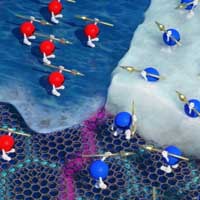 Researchers discover a surprising phase transition in twisted bilayer graphene.
Researchers discover a surprising phase transition in twisted bilayer graphene.
Wednesday, April 7, 2021
Entropy measurements reveal exotic effect in 'magic-angle' graphene
 Researchers discover a surprising phase transition in twisted bilayer graphene.
Researchers discover a surprising phase transition in twisted bilayer graphene.
Designing selective membranes for batteries using a drug discovery toolbox
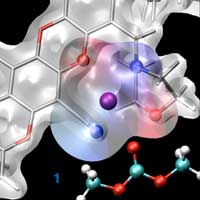 By binding specific ions in specially designed cages within its pores, a new membrane could enable more efficient flows in energy storage devices.
By binding specific ions in specially designed cages within its pores, a new membrane could enable more efficient flows in energy storage devices.
Artificial intelligence powered nanosensors to explore the biomolecular world
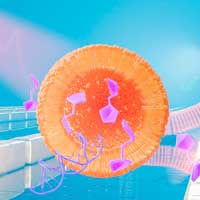 AI-powered nanosensors let researchers track various kinds of biological molecules without disturbing them.
AI-powered nanosensors let researchers track various kinds of biological molecules without disturbing them.
Cancer drugs could be delivered in molecular cages unlocked by light
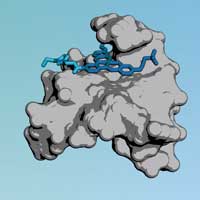 Molecular cages could lead to more targeted cancer drug delivery, causing greater efficiency and fewer side effects.
Molecular cages could lead to more targeted cancer drug delivery, causing greater efficiency and fewer side effects.
Nanoconfinement improves sensitivity and safety of a life-saving diagnostic contrast agent
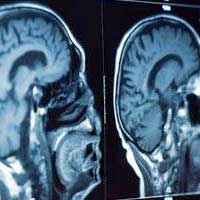 Scientists found that when packaged in a nanoparticle, CT contrast agents, such as iodine, increased the absorption of X-rays by nearly an order of magnitude, thus improving sensitivity for imaging and disease characterization and potentially reducing toxicity compared with conventional contrast agents.
Scientists found that when packaged in a nanoparticle, CT contrast agents, such as iodine, increased the absorption of X-rays by nearly an order of magnitude, thus improving sensitivity for imaging and disease characterization and potentially reducing toxicity compared with conventional contrast agents.
Nanoparticles reveal their location via mirror SELFI
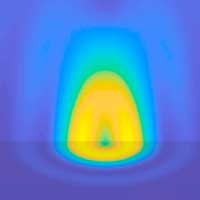 Researchers have shown for the first time that fluorescent nanoparticles placed near a mirror generate unique patterns that can be used to pinpoint their location.
Researchers have shown for the first time that fluorescent nanoparticles placed near a mirror generate unique patterns that can be used to pinpoint their location.
Quantum heat engine: Researchers develop powerful miniature motor
 Classical motors convert a form of energy such as heat into mechanical work. Can these laws also be transferred to a miniature machine that consists of only a single cesium atom and could thus work more efficiently? Physicists now have provided the proof.
Classical motors convert a form of energy such as heat into mechanical work. Can these laws also be transferred to a miniature machine that consists of only a single cesium atom and could thus work more efficiently? Physicists now have provided the proof.
Scientists create a new electronegativity scale
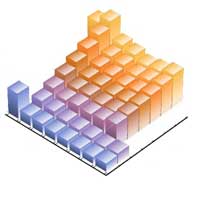 Scientists ventured to modify Pauling's formula and redefine the electronegativities of elements and ended up creating a new scale of electronegativity.
Scientists ventured to modify Pauling's formula and redefine the electronegativities of elements and ended up creating a new scale of electronegativity.
Subscribe to:
Comments (Atom)
